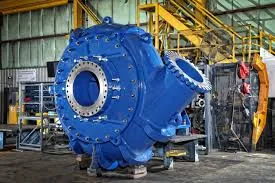English
- Afrikaans
- Albanian
- Amharic
- Arabic
- Armenian
- Azerbaijani
- Basque
- Belarusian
- Bengali
- Bosnian
- Bulgarian
- Catalan
- Cebuano
- Corsican
- Croatian
- Czech
- Danish
- Dutch
- English
- Esperanto
- Estonian
- Finnish
- French
- Frisian
- Galician
- Georgian
- German
- Greek
- Gujarati
- Haitian Creole
- hausa
- hawaiian
- Hebrew
- Hindi
- Miao
- Hungarian
- Icelandic
- igbo
- Indonesian
- irish
- Italian
- Japanese
- Javanese
- Kannada
- kazakh
- Khmer
- Rwandese
- Korean
- Kurdish
- Kyrgyz
- Lao
- Latin
- Latvian
- Lithuanian
- Luxembourgish
- Macedonian
- Malgashi
- Malay
- Malayalam
- Maltese
- Maori
- Marathi
- Mongolian
- Myanmar
- Nepali
- Norwegian
- Norwegian
- Occitan
- Pashto
- Persian
- Polish
- Portuguese
- Punjabi
- Romanian
- Russian
- Samoan
- Scottish Gaelic
- Serbian
- Sesotho
- Shona
- Sindhi
- Sinhala
- Slovak
- Slovenian
- Somali
- Spanish
- Sundanese
- Swahili
- Swedish
- Tagalog
- Tajik
- Tamil
- Tatar
- Telugu
- Thai
- Turkish
- Turkmen
- Ukrainian
- Urdu
- Uighur
- Uzbek
- Vietnamese
- Welsh
- Bantu
- Yiddish
- Yoruba
- Zulu
Telephone: +86 13120555503
Email: frank@cypump.com
Nov . 06, 2024 00:27 Back to list
Auxiliary Slurry Pump Manufacturing Facility Overview and Production Insights
The Significance of Auxiliary Slurry Pump Factories in Industrial Applications
In the ever-evolving landscape of industrial machinery, auxiliary slurry pumps play a critical role in various sectors, including mining, construction, and wastewater management. These pumps are specifically designed to handle abrasive and corrosive materials. The robust manufacturing process of these slurry pumps, particularly in dedicated factories, ensures the creation of reliable and durable equipment that meets the high demands of industrial applications.
Auxiliary slurry pumps are essential for transporting slurry—a mixture of solids and liquids—over substantial distances and through complex piping systems. These systems are often subjected to harsh operating conditions, including high pressures and temperatures. Thus, the manufacturing process not only requires precision engineering but also a deep understanding of materials capable of withstanding such challenging environments.
The Significance of Auxiliary Slurry Pump Factories in Industrial Applications
Once the design is finalized, the fabrication process begins. Cutting-edge manufacturing techniques, such as casting, machining, and welding, are employed to produce high-quality components. These processes often incorporate automated technologies to ensure precision and reduce human error. The assembly of the pumps is equally critical, where skilled technicians carefully integrate each component to guarantee operational efficiency.
auxiliary slurry pump factory

Quality control is paramount in the production of auxiliary slurry pumps. Factories implement rigorous testing protocols to verify the functionality and durability of each pump. This testing phase includes various performance tests, such as flow rate and pressure tests, to ensure that the pumps can handle the specific requirements of their intended applications. By committing to high standards of quality, factories not only enhance the reliability of their products but also build trust with clients who rely on this equipment for their operations.
Moreover, the sustainability of manufacturing practices is becoming increasingly important. Many auxiliary slurry pump factories are adopting environmentally friendly practices, such as minimizing waste and increasing energy efficiency in their production processes. The use of recyclable materials and eco-friendly manufacturing techniques contributes to a reduction in the environmental impact associated with industrial pump production.
In addition to the manufacturing and production of auxiliary slurry pumps, factories often provide extensive support services. This includes training for operators on best practices for pump maintenance and operation, as well as offering replacement parts and repair services. By ensuring that their clients are well-educated in the use and upkeep of their pumps, manufacturers help to maximize the lifespan and efficiency of their products.
The importance of auxiliary slurry pump factories cannot be overstated. They serve as the backbone of various industries that depend on efficient material transport. The reliability and performance of these pumps directly influence the productivity and effectiveness of operations across several sectors. As industries continue to evolve, the demand for advanced slurry pump technology will only increase, driving further innovation in manufacturing processes and materials.
In conclusion, auxiliary slurry pump factories are vital contributors to industrial progress. Their commitment to quality manufacturing, sustainability, and customer support not only enhances the functionality of the products but also supports industries in achieving their operational goals. As the world becomes more industrialized, the role of these specialized factories will undoubtedly become even more significant in ensuring efficient and reliable material handling solutions.
-
ISG Series Vertical Pipeline Pump - Chi Yuan Pumps Co., LTD.|Advanced Hydraulic Design&Energy-Efficient Solutions
NewsJul.30,2025
-
ISG Series Vertical Pipeline Pump - Chi Yuan Pumps Co., LTD.
NewsJul.30,2025
-
ISG Series Vertical Pipeline Pump - Chi Yuan Pumps Co., LTD.|energy-efficient fluid handling&industrial durability
NewsJul.30,2025
-
ISG Series Vertical Pipeline Pump - Chi Yuan Pumps | Advanced Engineering&Industrial Efficiency
NewsJul.30,2025
-
ISG Series Pipeline Pump - Chi Yuan Pumps | High Efficiency, Energy Saving
NewsJul.30,2025
-
ISG Series Vertical Pipeline Pump-Chi Yuan Pumps|High Efficiency&Reliable Performance
NewsJul.29,2025










